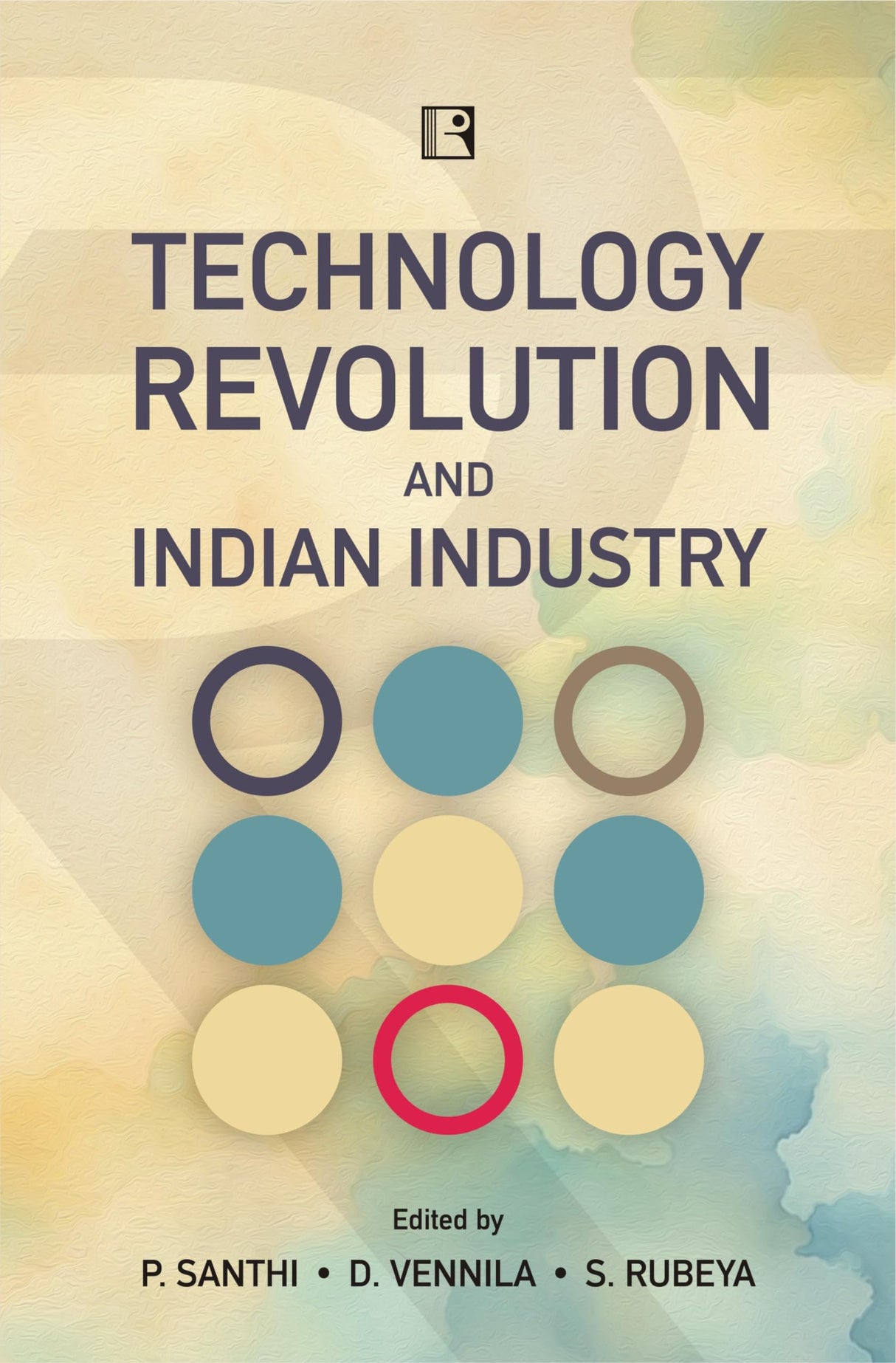TECHNOLOGY REVOLUTION AND INDIAN INDUSTRY
TECHNOLOGY REVOLUTION AND INDIAN INDUSTRY is backordered and will ship as soon as it is back in stock.
Couldn't load pickup availability
Genuine Products Guarantee
Genuine Products Guarantee
We guarantee 100% genuine products, and if proven otherwise, we will compensate you with 10 times the product's cost.
Delivery and Shipping
Delivery and Shipping
Products are generally ready for dispatch within 1 day and typically reach you in 3 to 5 days.
Book Details
-
Publisher: Rawat Publications
-
Author: P. Santhi, D. Vennila, S. Rubeya (eds.)
-
Language: English
-
Binding: Hardcover
-
Number of Pages: 346
-
Release Date: 13-04-2024
-
ISBN: 9788131613658
About the Book
Technology is integral to sustainable business development. It enhances the efficiency of systems, products, and services, and is essential for risk assessment and improving communication in businesses. Over time, businesses have adapted, becoming more resilient and adaptable. Education innovation serves as the foundation for technological and business innovations. Today, businesses are crucial in addressing major global challenges related to the environment, society, and governance. Key inventions have shaped various industries along industrial lines, and technological changes continue to transform global economic structures, affecting production and the development of new products and processes.
Industry 4.0 has brought considerable advantages to businesses, such as real-time data analysis, improved visibility, autonomous monitoring, and increased productivity and competitiveness. As companies continue to evolve through this fourth industrial revolution, Industry 5.0 is already underway, characterized by a shift from focusing on economic value to societal value, as well as a shift from welfare to well-being. This new revolution emphasizes the use of robots and smart machines to help humans work faster, utilizing technologies like big data analytics. Industry 5.0 focuses on being human-centric, resilient, and sustainable, with significant implications for business strategy.
This volume brings together research papers that explore these advances, offering essential insights for students, scholars, and professionals in various fields. It aims to enhance understanding of emerging technologies and their applications, which is crucial for all individuals in higher education institutions.
Contents
-
Foreword by T.S.K. Meenakshisundaram
-
Preface
-
Abbreviations
Key topics include:
-
Technology Transformation in Financial Markets and Services Through Cryptocurrency
-
Impact of Reforms in Banking Sector Performance: A Study on SBI Merger
-
Role of Technology in Green Banking in India
-
Progress of Sustainable Finance in India
-
Human Capital Development and Organizational Sustainability
-
Perception and Attitude Towards Green Banking
-
Impact of the COVID-19 Pandemic on the Growth of UPI
-
Blockchain: A Revolution in Data Management
-
Opportunities and Challenges of Emotional Artificial Intelligence in the Banking Sector
-
Gender Wage Gap for Female Commercial Drivers
-
Exploring the Nexus of Employee Engagement, Job Satisfaction, and Organizational Performance
-
Cloud Computing: The Logistics Game Changer
-
Impact of Credit Card Use and Electronic Payments on Compulsive Buying Behaviour
-
Role of Artificial Intelligence in Digital Marketing
-
E-Commerce Marketing: An Investigation on GI-Tagged Agricultural Products
About the Author(s)
-
P. Santhi is a Professor in Commerce and Dean of the School of Commerce and Management at Avinashilingam Institute for Home Science and Higher Education for Women, Coimbatore, Tamil Nadu. With over three decades of teaching and research experience, she specializes in Marketing, Insurance, Behavioral Finance, Consumer Behavior, and Sustainability.
-
D. Vennila is an Assistant Professor at the Department of Commerce, Avinashilingam Institute, with 23 years of experience. Her expertise lies in capital markets, banking, entrepreneurship development, and finance.
-
S. Rubeya is an Assistant Professor in the Department of Commerce at Avinashilingam Institute. With eight years of teaching experience, she has published research articles in national and international journals and completed a UGC-sponsored minor research project.





